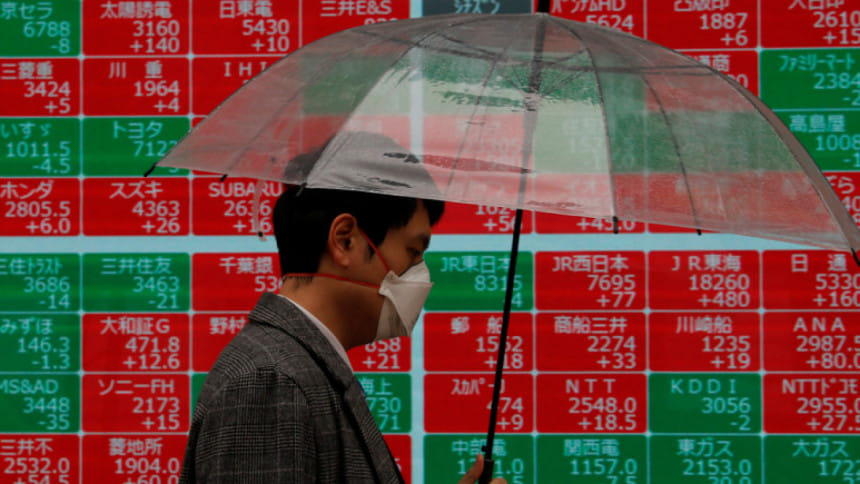Online Exclusive: Will Covid-19 lead to a novel road of economic thinking?

It is already known that the world will need to inject USD 7 trillion (and rising) into the economy to recover from the aftershocks of the Covid-19 pandemic. This indicates that a lot of changes are perhaps in the cards in the coming years across the globe. The great depression of 1930 that resulted from the 1929 crash of Wall Street triggered a sea of changes; Covid-19 could do likewise.
Governments in the US, Europe, Asia and elsewhere have pledged to support their economies without any prior precedent. Never before in the known history of human civilisation has the state agreed to pay the wages of those at risk of losing their jobs. Never before have they ordered social distancing.
The situation is similar to that of September 1939 when Germany invaded Poland—the beginning of the Second World War. World leaders today are facing a similar battle with the only difference that this time, it is not a real war but a virus taking a heavy toll on human lives and the world economy. The economy experienced a full-tilt between 1939 and 1945. Unemployment was quite high in the 1920s and 1930s but many countries in Europe, Britain and the USSR, in particular, took the fight against Hitler to eradicate this high unemployment.
Contrast that scenario with today. The UN estimated that as many as 24 million jobs (this estimate is also rising) could be lost if actions are not taken now. As there is no sign of the infection slowing down except in China, this figure can grow to even higher digits. The IMF has warned that its super-fast spread will adversely affect an expectedly stronger global growth this year and shall hold 2020 output gains to their slowest pace since the financial crisis of 2008-2009. The global growth will likely be below that of 2.9 percent in 2019—last year it was the "trade war" that pushed global growth to the lowest rate since a 0.7 percent contraction in 2009.
We are now witnessing a scenario in which production is being scaled back instead of being scaled up. The readymade garments industry in Bangladesh, for instance, is suffering a major blow as buyers have cancelled or suspended orders amounting to an estimated USD 1.5 billion. The situation in the informal sector and small business is far worse and we do not have any data on that yet. Sectors like healthcare and food production may see a rise globally, but it is very likely that the growth in these two sectors will also be undermined by the loss of output in other formal and informal sectors. The UK, one of the worst Covid-19 affected countries after Italy, is likely to suffer a major blow in terms of the rising number of unemployment in sectors like hotels, retails, clubs, cinemas, theatres, bars, restaurants, sports and gyms. These sectors contribute to almost one-third of UK jobs, which are now closed for business and are likely to remain closed for months to come. Unlike in 1940, when factories were working around the clock, the destructive bomb of today is attacking people and leaving buildings unharmed.
No economy in the world is immune to Covid-19. The European, American and Asian economic superpowers, as well as the poorest in Africa, are going to suffer grievously. This is in part because many governments and their leaders were either in denial or acted too late to fight this imminent danger. It proves how poor the public healthcare system is even in developed countries like the US, UK, Italy and Spain. It is also in part because the social safety net is either as poor or simply malfunctioning. Considering their size and place in the global financial system, these countries will still play a vital role in any recovery, but the damage will be massive nevertheless. The fate of authoritarian governments like China and Russia are not yet clear to us. We are once again where we were in 1930. At that time, it happened as an aftermath of the Wall Street crash. The difference is, it is now happening in all the economies, be it the largest or the smallest ones.
We can take an interesting read from these events by taking a closer look at the early years of the 21st century and the events that caused the global financial crisis of 2007-08. The same situation persisted when the First World War broke out. The first decade of the 20th century was a prosperous and peaceful period in terms of economic growth. But the war changed everything—it destroyed empires, created several nation-states and encouraged movements of independence in European colonies. It also made the US a superpower, led to communism in Russia and paved the way for fascism in Germany. The beginning of the 21st century, as we know, was marked by debt-fuelled growth and deregulation in the financial industry, popularly known as the subprime mortgage crisis.
The financial crisis destroyed the temperament of satisfaction like the outbreak of war did in 1914. Once victory had been achieved, attempts were made to go back to life as usual: in the 1920s, it was a balanced budget and return to the gold standard; in the 2010s after the financial crisis, it was debt-driven growth, balanced budget and financial speculation. Now here comes the interesting part in both cases—a decade and a half later, there came a second shock, the collapse of the debt-driven financial bubble in 1929 and the Covid-19 pandemic in 2020. In the 1930s and 1940s, old economies were abandoned and many countries in Europe, following Britain, came off the gold standard. Maynard Keynes's theory of Keynesian economics greatly influenced an entire generation of economists and policymakers. The theory was an attempt to understand the Great Depression and advocate for increased government spending, accompanied by lower taxes, in a bid to stimulate demand and thus recover the world economy. Most importantly, it was a felt need for new international architectures to avoid the policy fragmentation of the 1930s. Later, this need led to the creation of the United Nations, the International Monetary Fund and the World Bank.
Perhaps we are quite close to repeating this. The bailout package that has reached USD 7 trillion is a recognition by governments that they have to support their citizens. Likewise, the Bangladesh government has also declared the allocation of Tk 72,750 crore to tackle the possible impacts of the pandemic. Ideas like universal basic income (an economic way to prevent/reduce poverty and increase equality) is now being discussed seriously. One thing is certain—there will be no victory against Covid-19 without a strong level of multilateral cooperation.
Meer Ahsan Habib is a communication for development professional. Email: [email protected]

 For all latest news, follow The Daily Star's Google News channel.
For all latest news, follow The Daily Star's Google News channel. 






Comments